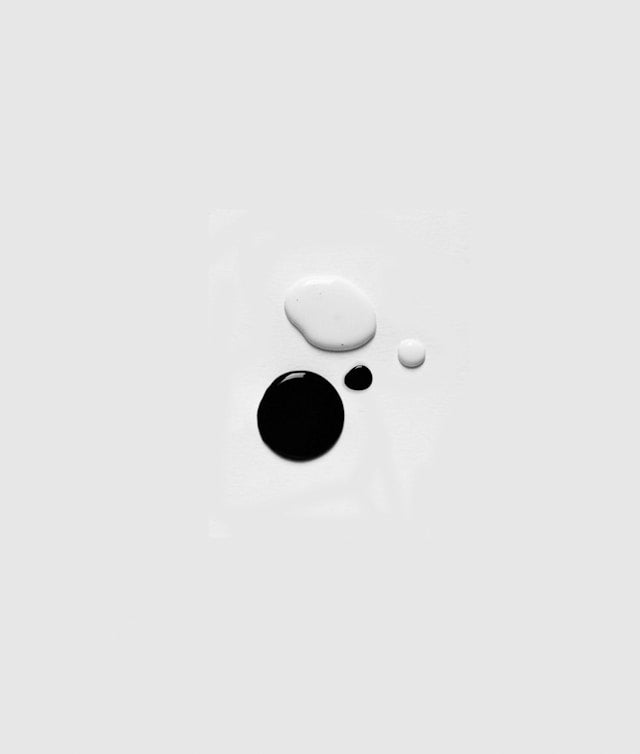
The Skincare Minimalism: Modern & Practical 4 Step Approach
Share
Skincare is a simple science translated into simple rituals. However, we live in the most confusing skincare world. Skincare products are often sold as an essential part of a routine involving a dozen rituals. We believe that skincare minimalism and living an organic lifestyle reward the skin more than complex practices involving multiple steps. Instead, such a method is unnecessary.
After receiving multiple requests from our readers, we wrote this article to focus on a modern and practical 4 step approach for skincare while covering what you need to know in under 5 minutes of reading.
The article will answer the following questions:
What is a good ritual or routine for my skin?
How do I get good results from your skincare routine?
I am using a dozen different patterns and many products from other companies; should I be different?
Our body operates on simple principles; skincare does not have to be complex.
1) Cleansing.
Our skin collects dirt, particles, excess oils, and dead skin cells, causing pour clogging and interruption of skin's barrier function. Skin cleansing removes the extra oil, sebum, and particles while exposing the younger skin cells for hydration and moisturization. We recommend cleansing the skin twice daily using a nature-derived, plant-based cleanser. Avoid harsh chemicals, sharp scrubbing particles, or products advertising "cleanest" skin in several days. Remember, good skincare combines living a healthy lifestyle, using natural skin care products, and eating healthy food.
Why nature-derived, plant-based cleanser?
A good cleanser should be gentle, pH-balanced, and lift and remove dirt and excess oil without harming skin-friendly oils and the microbiome. Products loaded with multiple surfactants and harsh chemicals leave the skin cells dehydrated and deplete the skin's microbiome.
2) Moisturizing.
Do I need a moisturizer if I have oily skin? Absolutely.
The outermost skin cells expose themselves to constant environmental changes, including sunlight, dust, UV exposure, temperature, and pH changes. This layer of skin cells tends to dry out quickly and repeatedly—a moisturizer locks in water molecules to the outer layer of the skin.
How do you pick a moisturizer?
We recommend you pick the moisturizer based on your skin type. For oily skin, use a pea size and more for drier skin. Adjust according to compliments you receive from your skin! Another way to choose a type of moisturizer is by selecting an oil-based (cream) or a water-based (lotion) moisturizer.
What is the best way to use a skin moisturizer?
Use a small amount first. Spread it evenly on your skin. Focus on areas that need extra attention, such as around the eyes and areas with skin wrinkles. You may use an extra dose for areas with wrinkles.
Plant-based moisturizers use natural oils that quickly disperse deep into the skin to hydrate the younger skin cells. Having a second, lighter volume application can get even better results. This concept is in stark contrast with products that use a complex of synthesized chemicals. In reality, you are getting a layer of synthetics without moisturizing or nourishing the skin cells by using such products. Skincare minimalism is based on the pillars of nature-derived products.
How do I know if the product is nature-derived or full of synthetics?
Read more here on ingredient labeling.
Why does my skin feel dry even after applying a good-quality moisturizer?
Water, Water, Water. Adequate hydration is a must for our skin to maintain healthy pH, nourishment, and remove unwanted material via the bloodstream. Daily water requirement differs by body, activity, temperature, and location; you can consider starting with eight servings of 8 ounces (two liters or a half-gallon) of water a day1.
How often should I moisturize? Use twice daily. A smaller amount in between during the daytime, if needed.
Examples of good quality face moisturizers- Stem Cell Cream and Rejuvenation Serum. For skin of the body- Daytime Kindle, and Night Ecstasy.
3) Skin Massage.
Skin massage is a relatively new concept but remains an essential cog in the skincare minimalism. The outermost skin cells (the visible layer of our skin) do not have a direct blood supply; they receive nutrition, hydration, and toxin clearance through dispersion from the deeper layers of the skin.
Gentle massage to the skin stimulates blood flow, improves lymphatic drainage, and helps improve collagen building. Skin massage also enhances the tone of underlying muscles; this helps prevent early sagging of the skin.
How do I massage my skin? - Watch a video.
Use a high-quality, organic massage oil such as Glow Face Massage or Body Massage.
1) Do-it-yourself or by someone or a professional.
2) Sit in a well-lit area.
3) Observe the site for massage. Look for unevenness, tonal imbalance, and wrinkles, if any.
4) Use a generous quantity of high-quality, organic body butter, lotion, or oil.
5) Use gentle pressure, circular motion, and sense the rising skin temperature.
6) Allow the massaged area to rest for about five minutes. Observe for progressive improvement every time you massage the area.
7) Be punctual and repeat periodically for consistent results!
8) Enjoy your great-looking skin!
Read more about skin massage here.
4) Protect.
Sunlight and UV radiation damages the skin cells. Consider using a lotion with SPF 30 or above if going out in the sun2.
How can I make my face and skin look younger?
We have numerous posts with a meaningful discussion here.
How do you feel after reading through this brief discussion on skincare minimalism? Let us know.
We hope that you found this post on skincare minimalism informative and valuable. Feel free to share our blog with others. Use this link- kusumcosmetics.com/blog/
Disclaimer-This website and content, comment, writing, or authors/contributors/writers do not provide or suggest medical, legal, or professional advice, opinion, or service. The information shared on this website is not intended to diagnose, treat, cure, or prevent any disease.
Reference:
1) https://www.healthline.com/nutrition/how-much-water-should-you-drink-per-day#Do-Other-Fluids-Count-Toward-Your-Total?
2) https://www.skincancer.org/blog/ask-the-expert-does-a-high-spf-protect-my-skin-better/
